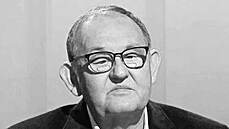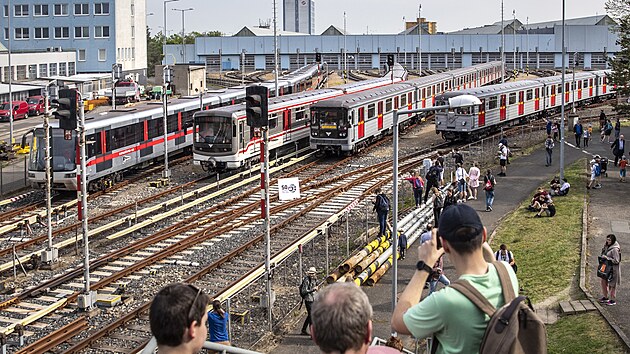November 17 is a red letter day in Czech calendars now, marking Struggle for Freedom and Democracy Day, known to the world as the anniversary of what has come to be known as the Velvet Revolution. On that autumn day in back 1989, a student procession began in Albertov marking the 50th anniversary of another event during a totalitarian age.
Back in 1939, Nazi occupiers had executed 10 student leaders, sent 1,100 to concentration camps and were ready to close Czech universities for three years in retaliation for an anti-occupation demonstration held a couple of weeks earlier, which manifested in the Jan.15 funeral of student Jan Opletal, who had been shot dead along with a worker, Václav Sedláček, on Oct. 28.
During the war, the Czechoslovak government in exile in London had proclaimed Nov.17 to be International Students’ Day; in 1989, the Communist leader Milouš Jakeš allowed a procession of students to mark the event, as an anti-fascist event marking the martyrdom of Opletal and other students during the Nazi occupation.
Velvet Revolution
It is, of course, symbolic that in October and November of 1939 and fifty years later, the demonstrations were in fact both calling for the return of freedom and democracy. The ranks of the peaceful student march that began at Albertov, swelled with every step; it is seen as the start of the Velvet Revolution, the non-violent movement that culminated less than six weeks later in the fall of the Communist government in Czechoslovakia and election of Václav Havel as president.
Easing their path, of course, was the fact that Jakeš and his comrades were horrified by the awakening of peoples in neighboring Poland and Hungary, and in particular the fall of the Berlin Wall. The winds of change notwithstanding, Jakeš let the baton-wielding riot police take out the regime’s frustrations on the students and others who protesting on Národní třída, Prague’s main avenue at the base of Wenceslas Square.
That was on a Friday. However, before the top party comrades had returned for a weekend at the famous chateau in Orlík the democratic Civic Forum (OF) had been formed, and thousands were filling squares demanding freedom and democracy. By then, the regime had gone numb, and no longer dared to intervene with obvious force.
Jakeš resigned as General Secretary of the Communist Party of Czechoslovakia; Gustáv Husák stepped down as president on Dec. 10, the same day that Marián Čalfa was appointed prime minister (replacing the discredited Ladislav Adamec) and became acting president, until “prisoner of conscience” Havel took over on Dec. 29.
A plethora of illusions
Some have theorized that there was too much ‘velvet’ and not enough ‘revolution.’ Some have theorized that there was too much “velvet” and not enough “revolution” — had the OF organized free elections in February 1990, the Communists would have been soundly defeated, and Marián Čalfa along with them, and the party could have been banned (today, the largely unreformed KSČM remains in the lower house of Parliament, and polls show it will be after the next elections, as well).
At the time, the country had experiences 41 years of Communism and before that, six years of Nazi occupation. Few people had any first-hand experience of participating in a functional democracy; practically no one of the leaders of the OF and Citizens Against Violence movements did, apart from Prof. Zdeněk Jičínský, who had a hand in Alexander Dubček’s reforms aimed at achieving “Socialism with a human face,” or the Prague Spring, crushed by the arrival of Warsaw Pact troops.
The population at large was equally unfamiliar with the democratic process. Citizens chanted “Havel to the Castle” — but also cheered for Dubček. Only to an enlightened few was it was clear that there would be no interim, freer “human” form of Socialism before the transition to a capitalist system. People were full of illusions, with taboos lifted day after day, yet they could not have imagined how their democracy would look in just ten short years.
Masaryk’s wish
The euphoria eventually faded. The Slovaks decided to go their own way, and Czechoslovakia split into two states on January 1, 1993. The center-right Civic Democrats (ODS) swept into parliament on the back of a perfect campaign, full of promises that the coupon or voucher privatization program of its co-founder, then Finance Minister Václav Klaus (the current president), would give everyone their rightful piece of the state pie. Moreover, the sun had set on the Civic Movement (OH), an offshoot of the OF close to Havel; the political pendulum had swung to the right, and the will to compromise faded.
The amount of corruption, theft, asset-stripping and ruin of state companies considered to be the ‘family silver’ suggest a firmer, more visible market hand was required. The large-scale privatization, of which Klaus, then prime minister, was chief architect, took place at a dizzying speed; lawyers had difficulty keeping up, and some of the laws were flawed, ripe for exploitation. For the champion of the free market, none of that much mattered. The invisible hand would correct any deficiencies, and individual liberties and minimum regulatory intervention was for the liberal Klaus the ideal.
The amount of corruption, theft, asset-stripping (or “tunneling,” a term the Czech gave to the world) and the ruin of state companies, including those considered to be the “family silver,” suggest a firmer, more visible hand was required.
An ingrained sense of what is right and wrong, and respect for the spirit of the law, wherein a man’s word is his bond and a handshake is enough to ensure an agreement is honored, are ideals not much in evidence in modern Czech culture. After 47 years of totalitarian regimes, and with so much wealth to be redistributed in the “Wild East” as a whole, perhaps that should not come as a surprise.
Annoying routine
The First Republic was born from the ashes of the “great war”; the first Czechoslovak president, Tomáš G. Masaryk, wished for the democracy to mature over 50 years of peace; it was to last a mere 15. Before the modern, independent Czech Republic turns 50, is it not worth considering whether some laws need further refining to keep the peace?
As the daily Mláda fronta Dnes illustrated in a recent survey, consumers, on average, are certainly better off today than they were 22 years ago, albeit more materialistic. But the freewheeling market and still freer political culture has led to embarrassing displays in the lower house of Parliament.
What’s more, debate among competing political parties, which over the past decade had at least tried to foster the marketplace of ideas, has degenerated into a dull and predictable routine. Back in 1989, most people in the country were filled with a sense of pride and hope for a better future. Today the opposite is largely true. This government has not won the minds, let alone the hearts or confidence, of the populace.
Czech are ever more frustrated, demotivated and susceptible to being taken in by radical “saviors.” There was plenty we didn’t know and couldn’t have foreseen 22 years ago, but that our democracy would have such a stench to it no one could have imagined.





